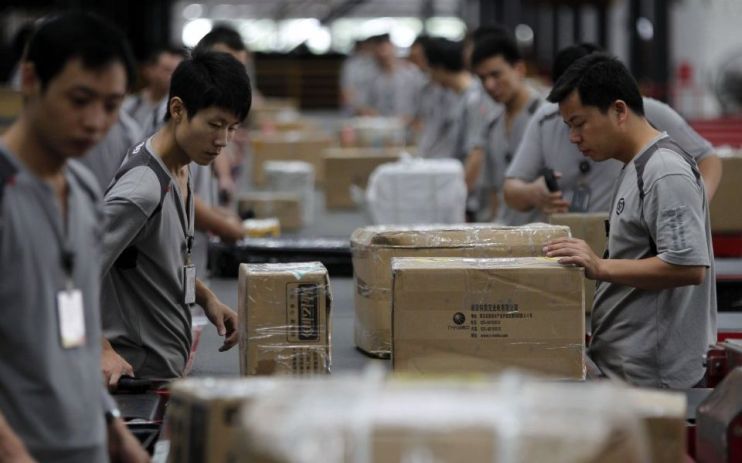First digital-only Black Friday set for bumper year as Covid-19 moves shoppers online

England’s first ever digital-only Black Friday will not deter customers, with figures suggesting sales could be as much as 43 per cent higher than in 2019, with customers now familiar with the convenience of shopping online thanks to coronavirus.
Figures from IMRG, the UK’s industry association for online retail, found this year’s Black Friday sales could be between 35 and 43 per cent higher than in 2019, when the shops were still open.
Black Friday this year is unusual because England is still in a nationwide lockdown due to rising coronavirus cases and deaths, and shoppers are therefore unable to use non-essential shops to nab deals.
Covid-19 restrictions led to more online shopping in general. More than two in five (43%) UK consumers shopped online more frequently because of the pandemic, and around one in five (21%) shopped online for the first time, opening up a whole new demographic to eCommerce.
The picture is similar in the United States, which is currently under a mixture of lockdowns and restrictions across the country as it deals with Covid-19. The US National Retail Federation expects total Black Friday sales to grow between 3.5 and 5 per cent this year, while online sales are forecast to increase by between 20 and 30 per cent, with mobile sales account for more than 40 per cent of all online sales during the holidays.
Robust digital capabilities to win
For online retail giant Amazon, Black Friday presents a “perfect storm”, according to Mindshare chief transformation officer Tom Johnson: “People are already looking for deals to make their money go further as they worry about the economy; with most shops shut or online only, Amazon can hoover up more of the pre-Christmas rush than normal.”
Amazon hit $89bn in revenue in Q2 and $96bn in Q3 this year, and it is expected to pass $100bn in the last quarter. Amazon’s billionaire founder Jeff Bezos’s personal growth has grown around £42bn since February, as consumers turned away from high street shops and went online.
Johnson continued: “Retailers that can meet increased online demand because they have robust digital sales capabilities, either because they are pureplay online businesses from the outset or they have used the lockdown to accelerate their digital sales ambitions to be a true omnichannel retailer, will be the winners.”
Paysafe Group chief operating officer Danny Chazonoff said today could be the “turning point” for online businesses, forcing them to evaluate whether they are catering to the changing demands and expectations of customers.
“Our research highlighted that 78 per cent of UK businesses have offered consumers new ways to pay, including contactless payments,” he said. “This is largely due to seeing a change in consumer payment preferences with the most noteworthy difference being the increased use of digital wallets.
“However, while 60 per cent of businesses see alternative payment methods as more important than ever, it isn’t the only reason online retailers must consider updating their checkout. Some 54 per cent of UK online businesses noticed an increase in cart abandonment rates during Covid-19 while 60 per cent of online businesses say COVID-19 has resulted in consumers being more concerned about being a victim of fraud.”
Meanwhile Stefan Milev, chief marketing officer at jeweller Taylor & Hart, said the changes forced upon Black Friday by the ongoing coronavirus crisis may spell higher prices and longer service times for consumers.
“Black Friday sales won’t be limited to a single day, they will almost certainly be extended for longer periods, which could result in smaller reductions,” he explained.
“Longer delivery times are a likely side-effect of the surge in online shopping, with parcel couriers having to navigate a sustained period of demand much higher than a normal festive period. We’ll likely see major retailers bring forward cut off points for last available delivery before Christmas Day.”